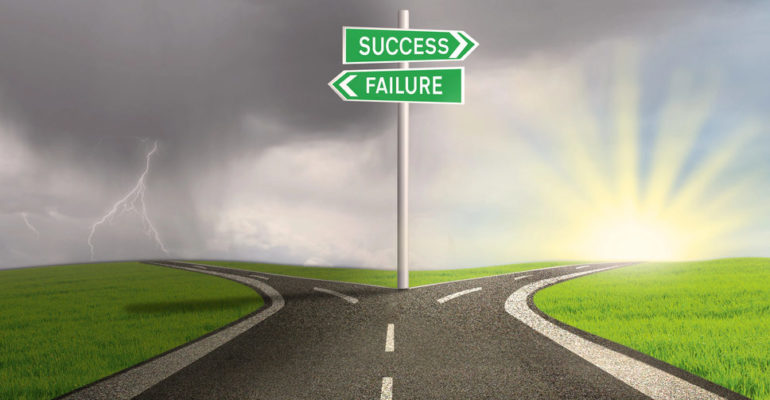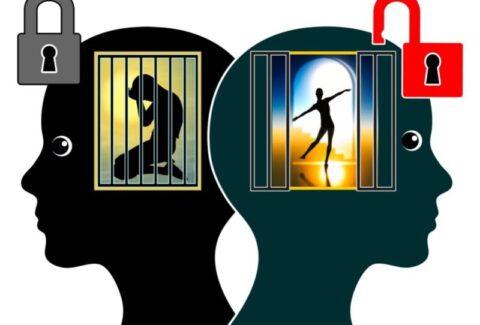The Schema of Failure as a Catalyst for Growth
In the intricate tapestry of the human psyche, the schema of failure[1] stands as a shadowy figure, often casting doubt and fear on the canvas of our aspirations. Yet, beneath the perceived darkness lies a profound opportunity for transformation, resilience, and the cultivation of a nuanced understanding of success. Let us embark on a journey to unravel the complexities of the schema of failure and explore how it can serve as a potent catalyst for personal and professional growth.
The Veil of Failure
Failure, often veiled in societal stigma and personal disappointment, manifests as an emotional schema that can profoundly influence our perceptions, behaviors, and self-worth.[2] The fear of failure becomes a formidable force, capable of stifling ambition and hindering the pursuit of goals.
The Paradox of Growth
Paradoxically, it is within the depths of failure that seeds of growth are sown. The lessons learned from setbacks, mistakes, and unmet expectations become invaluable stepping stones on the path to self-discovery and mastery.
Redefining Success
The schema of failure challenges conventional notions of success, urging individuals to redefine their relationship with achievement. It prompts a shift from a fixed mindset focused on avoiding failure to a growth mindset centered on learning and resilience.[3]
Unmasking Fear
Acknowledging and confronting the fear associated with failure is the first step toward liberation. By unmasking the fear, individuals gain the freedom to explore their limits, take calculated risks, and embrace the uncertainty inherent in the pursuit of excellence.[4]
Transformative Reflection
Failure serves as a mirror, reflecting aspects of us that may have remained unnoticed during moments of success. Through reflective practice, individuals can glean insights into their strengths, weaknesses, and areas for personal and professional development.[5]
Building Resilience
Resilience, the cornerstone of navigating failure, emerges as individuals learn to bounce back from setbacks with newfound determination.[6] Each encounter with failure becomes an opportunity to fortify the emotional and psychological resilience needed for future challenges.
Cultivating Self-Compassion
In the face of failure, self-compassion[7] becomes a powerful antidote. Treating oneself with kindness and understanding fosters a supportive inner dialogue, mitigating the harsh self-judgment that often accompanies setbacks.
Embracing Iteration
Failure challenges the notion of a linear path to success. Embracing the concept of iteration[8], individuals recognize that twists, turns, and recalibrations often mark progress. Each failure becomes a valuable iteration toward mastery.
Inspiring Innovation
Throughout history, some of the most profound innovations and breakthroughs have arisen from the ashes of failure. The schema of failure becomes a fertile ground for innovation, encouraging individuals to think outside conventional boundaries and explore uncharted territories.[9]
Empowering Others
By openly acknowledging and sharing stories of failure, individuals contribute to destigmatizing setbacks and create a culture that encourages resilience and authenticity. The collective empowerment[10] that emerges can fuel a shared journey toward growth and success.
The Tapestry of Success
In the grand tapestry of success[11], the threads of failure are interwoven, creating a richer, more textured narrative. Embracing failure not as an endpoint but as an integral part of the journey transforms the pursuit of success into a dynamic and evolving masterpiece.
As we unravel the schema of failure, let us recognize it not as an adversary to be avoided, but as a wise mentor guiding us toward the profound depths of our potential. In the dance between success and failure, the symphony of personal and professional growth emerges, echoing the resilience and transformative power within us all.
Schema Therapy[12] offers a solution where Cognitive Behavioral Therapy may have fallen short. It integrates various evidence-based practices, including attachment theory, psychodynamic psychotherapy, mindfulness, and Gestalt therapy. This holistic approach blends the best of each method to engage clients effectively.
[1] Pilkington, Pamela, Rita Younan, and Amy Bishop. “Early maladaptive schemas, suicidal ideation, and self-harm: A meta-analytic review.” Journal of affective disorders reports 3 (2021): 100051.
[2] Ronnie, Janoff-Bulman, and Brickman Philip. “Expectations and what people learn from failure.” Expectations and actions. Routledge, 2021. 207-237.
[3] Varenne, Hervé. Successful failure: The school America builds. Routledge, 2018.
[4] De Castella, Krista, Don Byrne, and Martin Covington. “Unmotivated or motivated to fail? A cross-cultural study of achievement motivation, fear of failure, and student disengagement.” Journal of educational psychology 105.3 (2013): 861.
[5] Austin, Michele. “Creating space for personal transformation.” Personal, Educational and Organizational Transformation: Leading During Times of Metacrisis. Cham: Springer International Publishing, 2023. 51-80.
[6] Illouz, Eva. “Resilience: the failure of success.” The Routledge international handbook of global therapeutic cultures. Routledge, 2020. 83-91.
[7] Neff, Kristin D., and Marissa C. Knox. “Self-compassion.” Encyclopedia of personality and individual differences. Cham: Springer International Publishing, 2020. 4663-4670.
[8] Madaan, Aman, et al. “Self-refine: Iterative refinement with self-feedback.” Advances in Neural Information Processing Systems
[9] Smil, Vaclav. Invention and innovation: a brief history of hype and failure. MIT Press, 2023.
[10] Papathanasiou, Ioanna V., et al. “Motivation, leadership, empowerment and confidence: Their relation with nurses’ burnout.” Materia socio-medica 26.6 (2014): 405.
[11] Piaget, Jean. Success and understanding. Routledge, 2013.
[12] Young, Jeffrey E., Janet S. Klosko, and Marjorie E. Weishaar. “Schema therapy.” New York: Guilford 254 (2003): 653-658.







